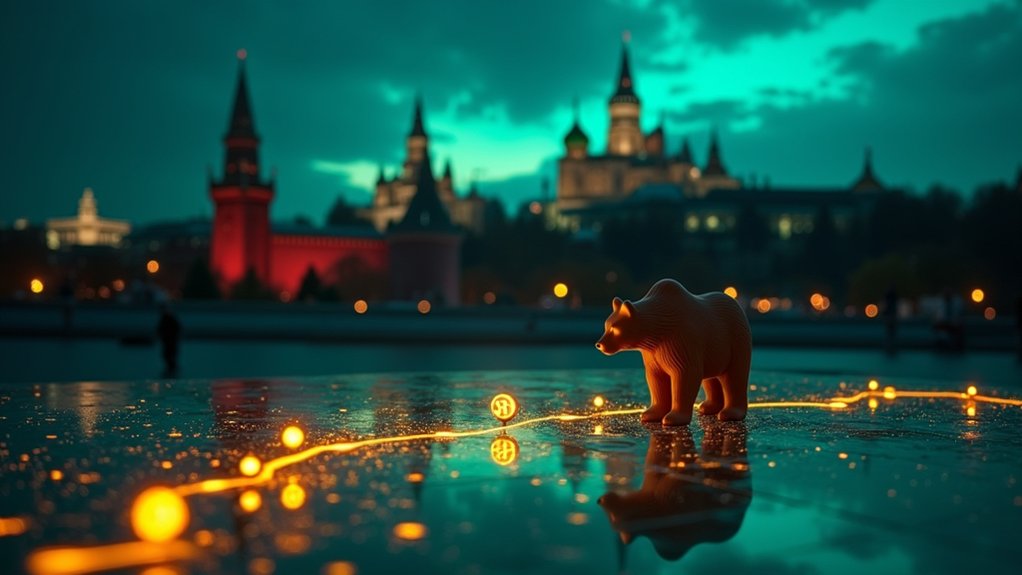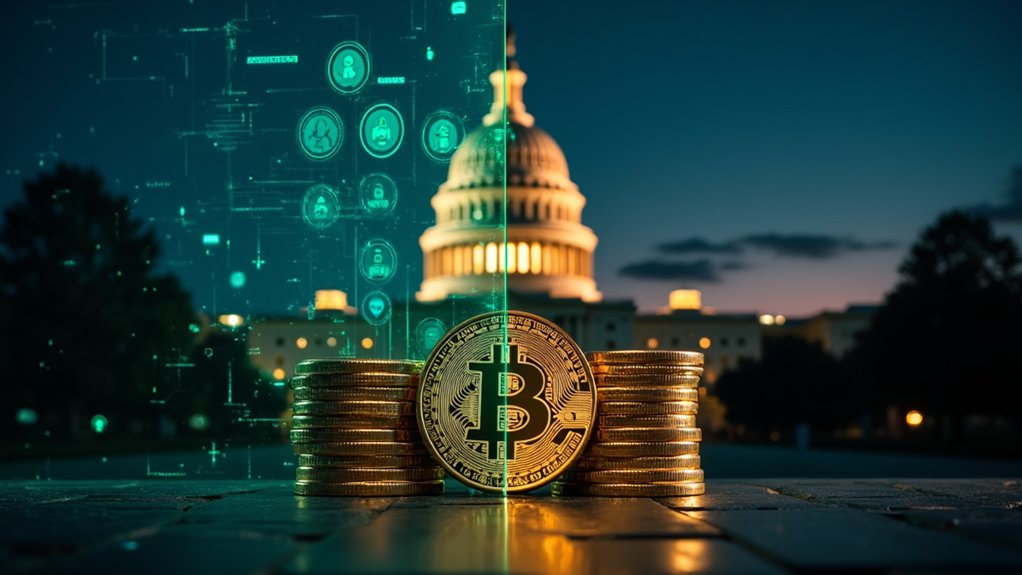While most countries still scratch their heads over cryptocurrencies, Russia is making a calculated move into digital assets—with strings attached, of course. The Bank of Russia is eyeing a three-year experimental legal regime, but don’t expect everyday Russians to join the crypto party. Only “qualified” investors with at least $1.14 million in cash or $570,000 in annual income will get invitations.
Russia’s crypto experiment is an exclusive club with a steep cover charge — millions required for entry.
Everyone else? They’re facing penalties for trying to play in this exclusive sandbox. The central bank has explicitly warned about volatility in cryptocurrency markets for those outside the experimental legal regime.
It’s not just for kicks. Russia’s got serious motives behind this crypto strategy. Western sanctions after the Crimea annexation hit hard, and Moscow needs options. Traditional financial systems? Too restrictive. The Kremlin wants autonomy, stability, and workarounds for international trade. Can’t blame them for trying.
Funny thing though—Russia’s not putting Bitcoin in its National Wealth Fund. The Finance Ministry took one look at crypto’s roller-coaster price action and said, “No thanks.” They’re sticking with gold and Chinese yuan instead. Up to 60% yuan and 40% gold. Old school, but predictable.
Meanwhile, Russian oil traders aren’t waiting for permission slips. They’re already moving tens of millions in oil transactions with China and India using Bitcoin, Ether, and USDT. It’s a drop in the $192 billion oil trade bucket, but it’s growing. Sanctions? What sanctions?
Russia’s central bank remains skeptical—shocking, right? They keep warning about volatility while simultaneously exploring blockchain for cross-border payments. Talk about mixed signals. Technological improvements in blockchain systems could eventually persuade Russia to adopt a more favorable stance toward cryptocurrencies.
The contrast with America couldn’t be starker. While the U.S. plans a national crypto reserve with various coins, positioning itself as the cryptocurrency investment capital, Russia’s approach is more “look but don’t touch.” Unless you’re rich.
This cautious strategy has global implications. Other sanctioned countries are taking notes. The financial landscape is shifting, and the debate on crypto’s role in national economies isn’t ending anytime soon. One thing’s clear: in the high-stakes game of global finance, Russia isn’t sitting on the sidelines. By late 2024, Russia showed increased interest in Bitcoin as a potential tool to counter Western sanctions, before ultimately deciding against it for national reserves.





